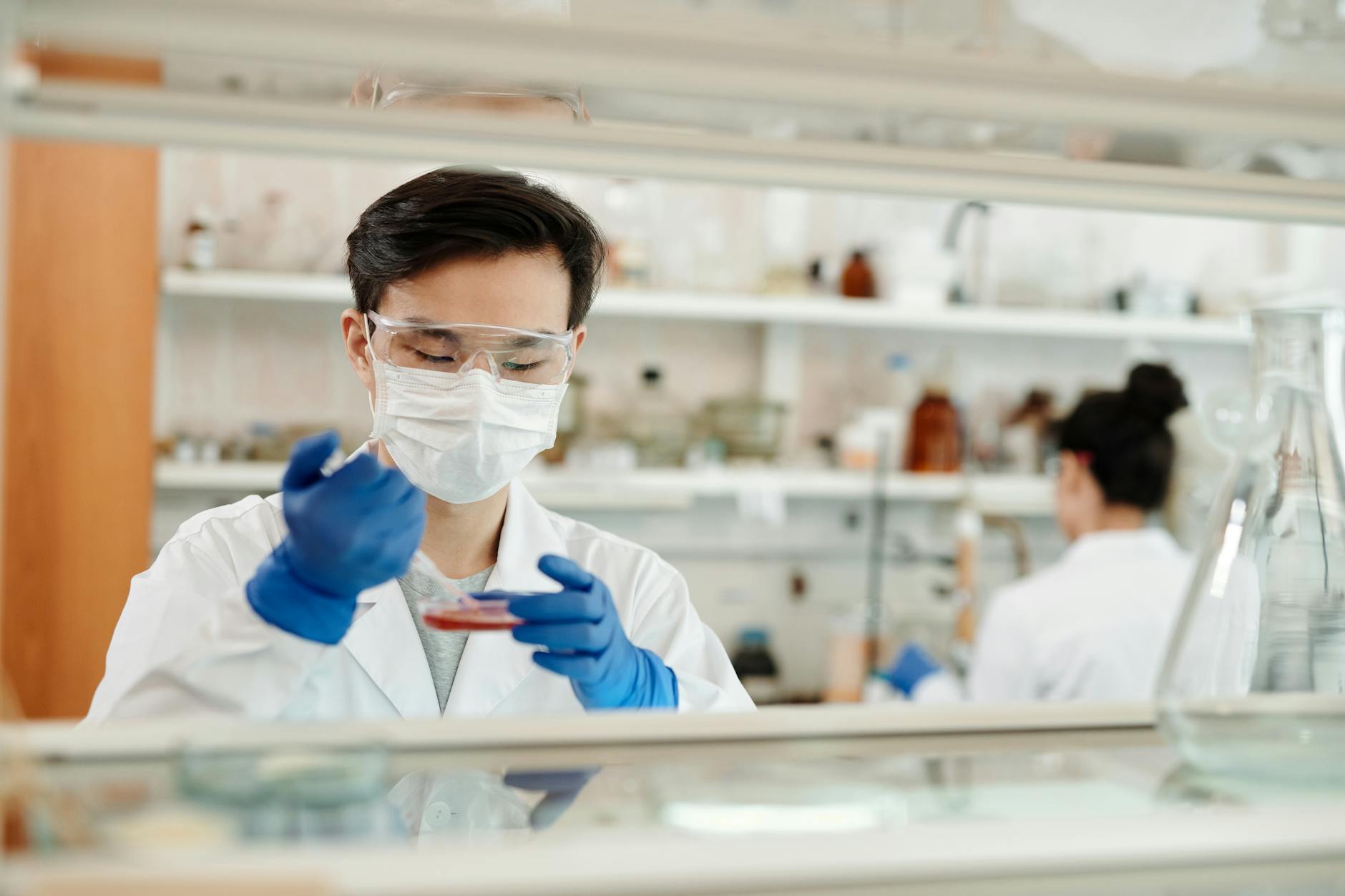The male reproductive system is a complex network of organs and glands that work together to produce, store, and transport sperm, as well as to facilitate the process of fertilization. Understanding its structure and function is crucial for comprehending the factors that can affect male reproductive health.
Page Contents
Introduction to Male Reproductive System: Anatomy and Function
At the core of the male reproductive system are the testes, which are responsible for producing sperm and testosterone, the primary male sex hormone. The sperm then travels through a series of ducts, including the epididymis, vas deferens, and ejaculatory ducts, before being expelled from the body during ejaculation. Alongside the sperm-producing function, other organs such as the prostate gland and seminal vesicles contribute fluids that nourish and protect sperm.

Hormonal Regulation
Key to the proper functioning of the male reproductive system is the delicate balance of hormones, especially testosterone. This hormone regulates various aspects of male physiology, including sperm production, libido, and secondary sexual characteristics such as muscle mass and voice deepening.
Importance of Male Reproductive Health
Maintaining optimal male reproductive health is not only crucial for fertility and reproduction but also for overall well-being and quality of life. Issues such as infertility, erectile dysfunction, and hormonal imbalances can significantly impact both physical and psychological health, underscoring the importance of understanding and addressing these concerns proactively.
In summary, the male reproductive system is a vital component of male anatomy, responsible for sperm production, hormone regulation, and sexual function. A deeper understanding of its anatomy and function is fundamental to addressing issues related to male reproductive health effectively.
Common Problems Affecting Male Reproductive Health
Male reproductive health can be affected by various factors, leading to conditions that impact fertility, sexual function, and overall well-being. Understanding these issues is essential for identifying symptoms early and seeking appropriate medical advice.
Causes of Male Reproductive Health Issues
Several factors contribute to problems with male reproductive health:
- Hormonal Imbalances: Disruptions in testosterone levels or other hormones can affect sperm production and sexual function.
- Lifestyle Factors: Poor diet, lack of exercise, smoking, excessive alcohol consumption, and drug use can all negatively impact male reproductive health.
- Medical Conditions: Chronic diseases such as diabetes, hypertension, and obesity can affect fertility and sexual function.
- Genetic Factors: Some genetic conditions can affect sperm production or the structure of reproductive organs.
- Environmental Factors: Exposure to toxins, chemicals, radiation, and certain medications can impair sperm production and function.
Common Conditions
Several conditions are prevalent in male reproductive health:
- Erectile Dysfunction (ED): The inability to achieve or maintain an erection sufficient for sexual intercourse.
- Low Sperm Count (Oligospermia): When semen contains fewer sperm than normal, which can reduce fertility.
- Low Semen Volume: Decreased amount of seminal fluid, which may affect fertility.
- Varicocele: A swelling of the veins that drain the testicle, which can impact sperm production.
- Hormonal Imbalances: Such as low testosterone levels, which can affect libido and sperm production.
Impact on Quality of Life
Issues related to male reproductive health can have significant implications for quality of life:
- Emotional and Psychological Effects: Fertility issues and sexual dysfunction can lead to stress, anxiety, and depression.
- Relationship Challenges: Difficulties in conceiving or sexual dissatisfaction can strain relationships.
- Self-esteem and Confidence: Sexual performance and fertility can affect a man’s self-image and confidence.
Understanding the causes and common conditions affecting male reproductive health is crucial for early detection and effective management. By addressing these concerns proactively, individuals can take steps to maintain optimal reproductive health and overall well-being.
Factors Affecting Male Reproductive System
The health of the male reproductive system is influenced by a variety of internal and external factors. Recognizing these influences can help in managing and improving reproductive health effectively.
External Factors
Diet and Nutrition:
- Balanced Diet: A diet rich in vitamins, minerals, and antioxidants supports reproductive health. Nutrients like zinc, selenium, and vitamins C and E play crucial roles in sperm production and quality.
- Avoiding Processed Foods: High consumption of processed foods and sugars can negatively impact hormone levels and reproductive function.
Exercise and Physical Activity:
- Regular Exercise: Engaging in moderate exercise can improve testosterone levels and overall health, contributing to better reproductive function.
- Excessive Exercise: Overtraining can lead to hormonal imbalances and reduced sperm production.
Environmental Toxins:
- Exposure to Chemicals: Contact with pesticides, heavy metals, and industrial chemicals can adversely affect sperm production and function.
- Pollution: Air and water pollution may also contribute to reproductive health issues.
Lifestyle Choices:
- Smoking: Tobacco use is linked to decreased sperm quality and reduced fertility.
- Alcohol Consumption: Excessive drinking can impair hormone levels and sperm production.
Internal Factors
Hormonal Imbalances:
- Testosterone Levels: Low testosterone can impact libido, sperm production, and overall reproductive health.
- Other Hormones: Imbalances in hormones such as luteinizing hormone (LH) and follicle-stimulating hormone (FSH) can affect fertility.
Genetics:
- Inherited Conditions: Genetic disorders like Klinefelter syndrome can affect testicular function and sperm production.
- Genetic Mutations: Certain genetic mutations can lead to issues with sperm quality and fertility.
Aging:
- Decreased Sperm Quality: As men age, sperm count and motility may decline, impacting fertility.
- Hormonal Changes: Aging can lead to changes in testosterone levels and reproductive function.
Both external and internal factors play significant roles in the health of the male reproductive system. Understanding these factors helps in addressing potential issues through lifestyle changes and medical interventions.
Treatment and Prevention Options
Addressing male reproductive health issues involves a combination of medical treatments and lifestyle adjustments. Effective management can improve symptoms, enhance fertility, and support overall reproductive health.

Medical Treatments
- Medications:
- Hormone Therapy: For conditions like low testosterone or hormonal imbalances, hormone replacement therapy (HRT) can help restore normal levels and improve reproductive function.
- Erectile Dysfunction Medications: Drugs such as PDE5 inhibitors can enhance blood flow and help achieve and maintain erections.
- Surgical Interventions:
- Varicocele Repair: Surgery can correct varicoceles, which may improve sperm production and fertility.
- Vasectomy Reversal: For men who have had a vasectomy but wish to father children, surgical reversal can restore fertility.
- Assisted Reproductive Technologies (ART):
- Intrauterine Insemination (IUI): A procedure where sperm is directly inserted into the uterus to increase the chances of fertilization.
- In Vitro Fertilization (IVF): A process where eggs and sperm are combined outside the body to create embryos, which are then implanted in the uterus.
Lifestyle Changes
- Diet and Nutrition:
- Healthy Eating: A balanced diet rich in fruits, vegetables, whole grains, and lean proteins supports overall reproductive health.
- Hydration: Adequate water intake is crucial for maintaining sperm health and overall bodily functions.
- Exercise and Weight Management:
- Regular Exercise: Engaging in moderate exercise helps maintain a healthy weight and supports hormonal balance.
- Weight Control: Maintaining a healthy weight can improve hormone levels and reproductive function.
- Avoiding Harmful Substances:
- Quitting Smoking: Eliminating tobacco use can improve sperm quality and overall reproductive health.
- Moderating Alcohol Consumption: Reducing alcohol intake can prevent negative effects on hormone levels and sperm production.
- Stress Management:
- Relaxation Techniques: Practices like meditation, yoga, and deep-breathing exercises can help manage stress, which may positively impact reproductive health.
A comprehensive approach to treating and preventing male reproductive health issues involves both medical treatments and proactive lifestyle changes. By addressing these aspects, individuals can enhance their reproductive health and overall well-being.
More information is coming soon...
Dr. Jerry K is the founder and CEO of YourWebDoc.com, part of a team of more than 30 experts. Dr. Jerry K is not a medical doctor but holds a degree of Doctor of Psychology; he specializes in family medicine and sexual health products. During the last ten years Dr. Jerry K has authored a lot of health blogs and a number of books on nutrition and sexual health.
